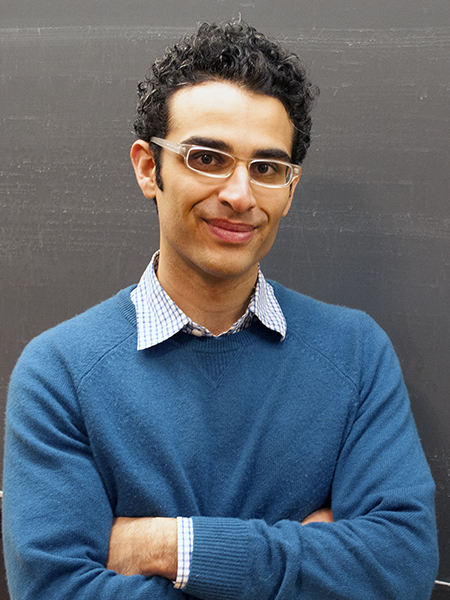Armour College of Engineering’s Mechanical, Materials, and Aerospace Engineering Department will welcome Dr. Maziar Hemati, an Assistant Professor in the Department of Aerospace Engineering and Mechanics at the University of Minnesota, Twin Cities, on Wednesday, October 7, to present a lecture on “Modeling, Estimation, and Control of Fluid Flows.”
Date and Time: Wednesday, October 7; 3:30–4:30 p.m.
Location: Virtual Seminar
Contact: Elena Magnus at magnus@iit.edu for the seminar details and link to join
Abstract
Flow control technologies can enhance performance and efficiency in engineering systems, ranging from airplanes to underwater robots to wind turbines. Ongoing efforts aim to improve the reliability and performance of these systems by “feeding back” sensed information about the evolution of a flow to determine how to actuate the flow in an optimal manner. As flow conditions change, feedback flow control is able to recognize these changes and adjust the actuation accordingly. Achieving effective flow control often requires reliable and efficient models for the complex dynamics of fluid flows; estimators that can infer knowledge about the evolution of these flows from a limited set of sensor measurements; and control policies and algorithms that use these inferences to actively and reliably manipulate the evolution of fluid flows to achieve specified performance objectives. This talk will provide an overview of past and ongoing research related to modeling, estimation, and control of laminar, turbulent, and transitional flows.
Biography:

Maziar Hemati is an Assistant Professor in the Department of Aerospace Engineering and Mechanics at the University of Minnesota, Twin Cities. Dr. Hemati’s research program is aimed at gaining an improved understanding of the various mechanisms required to achieve reliable fluid flow control in the context of engineered systems, including flight vehicles, robotic swimmers, and wind turbine arrays. He is a recipient of the 2020 NSF CAREER Award and the 2019 AFOSR Young Investigator Award. Prior to joining the faculty at the University of Minnesota, he served as a Post-Doctoral Research Associate in the Department of Mechanical and Aerospace Engineering at Princeton University. Dr. Hemati earned his Ph.D. and M.S. in Mechanical Engineering and his B.S. in Aerospace Engineering, all from UCLA.
